Epilogue
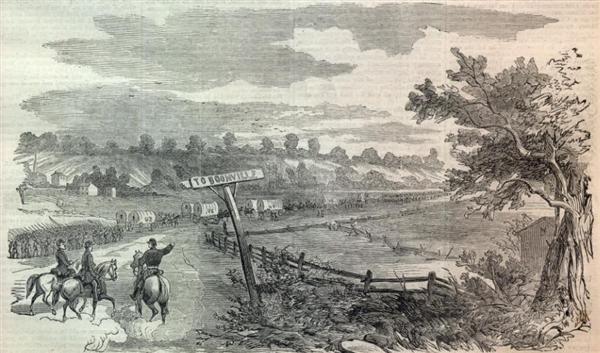
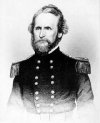
The Battle of Boonville lasted less than 30 minutes from the time the advancing Federals first opened fire on the Missouri State Guard defensive line until the State Guardsmen were in full retreat. Brigadier-General Nathaniel Lyon reported that Federal casualties were two killed, one missing and nine wounded. Two of the wounded would later die of their wounds. Casualties suffered by the State Guardsmen are less well known. The Missouri State Guard casualties were probably two killed and five or six wounded. In his official report, Lyon said the Federals took 60 prisoners, who they later paroled "upon oath to obey the laws of the General Government and not oppose it during the present civil troubles." [51]
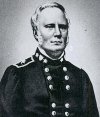
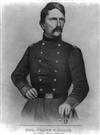
An important point to remember about the Battle of Boonville and its outcome is how quickly the events unfolded. Missouri State Guard Major-General Sterling Price had been lulled into a false sense of security after agreeing to the Price-Harney Agreement and had ordered the newly formed Missouri State Guard to return to their home districts and continue organizing there. But Frank Blair, Jr. and Nathaniel Lyon were convinced of Price's and Governor Jackson's duplicity. They were prepared to take immediate action when Lyon stormed out of the meeting at the Planters House Hotel after declaring a state of war to exist between them. The meeting ended on June 11th and by June 17th, Lyon had defeated the Missouri State Guard and sent the Governor of Missouri fleeing south into exile. What Lyon had been able to accomplish in a few days was an unquestioned success. Lyon had suddenly become known nation wide. Union newspapers heralded Lyon's tremendous victory, calling it “The Boonville Races” because of the retreating Missouri State Guard. [52]
![Political cartoon, 'Strayed,' published in 1861 by Ehrgott & Forbriger. An exultant view of the rout, by Union forces commanded by Capt. Nathaniel Lyon, of troops under Gen. Sterling Price and Claiborne F. Jackson at Boonville, Missouri, in June 1861. Jackson, the secessionist governor of Missouri, had been driven from the state capital, Jefferson City. He and other members of his government retreated along with Confederate commander Price and his troops. Overtaken by Lyon at Boonville on June 17, they were then forced to flee in separate directions. The artist makes a play on a commonplace of the time--the public notice of strayed animals. Jackson is the subject of this notice. He is portrayed here as an ass, strayed 'from the neighbourhood of Boonville, Mo. on the 18th inst[ant] a mischievous JACK who was frightened and run away from his Leader by the sudden appearance of a Lion.' The notice continues 'He is of no value whatever and only a low Price can be given for his capture. [Signed:] Sam.' On the outskirts of the city, the ass stands on top of a small rise, clearly alarmed by the approach of federal troops led by a lion (Lyon). On the right a terrified General Price crouches (apparently defecating) as his panicked troops flee in the background. - Library of Congress Political cartoon, 'Strayed,' published in 1861 by Ehrgott & Forbriger. An exultant view of the rout, by Union forces commanded by Capt. Nathaniel Lyon, of troops under Gen. Sterling Price and Claiborne F. Jackson at Boonville, Missouri, in June 1861. Jackson, the secessionist governor of Missouri, had been driven from the state capital, Jefferson City. He and other members of his government retreated along with Confederate commander Price and his troops. Overtaken by Lyon at Boonville on June 17, they were then forced to flee in separate directions. The artist makes a play on a commonplace of the time--the public notice of strayed animals. Jackson is the subject of this notice. He is portrayed here as an ass, strayed 'from the neighbourhood of Boonville, Mo. on the 18th inst[ant] a mischievous JACK who was frightened and run away from his Leader by the sudden appearance of a Lion.' The notice continues 'He is of no value whatever and only a low Price can be given for his capture. [Signed:] Sam.' On the outskirts of the city, the ass stands on top of a small rise, clearly alarmed by the approach of federal troops led by a lion (Lyon). On the right a terrified General Price crouches (apparently defecating) as his panicked troops flee in the background. - Library of Congress](uploads/images/tours/boonville/300p-strayed-political-cartoon-battle-boonville.jpg) |
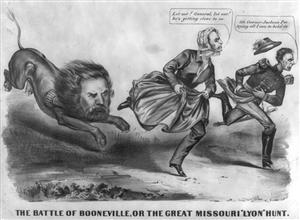 |
Thomas L. Snead was Governor Jackson's aide-de-camp and the Acting Adjutant-General for the Missouri State Guard during the time of the Battle of Boonville. He had the following assessment of the battle's impact on the struggle for the State of Missouri: [53]
“Insignificant as was this engagement in a military aspect, it was in fact a stunning blow to the Southern Rights' people of the State, and one which did incalculable and unending injury to the Confederates. It was indeed the consummation of Blair's statesmanlike scheme to make it impossible for Missouri to secede, or out of her great resources to contribute abundantly of men and material to the Southern cause as she would surely have done had her people been left free to do as they pleased."
"It was also the crowning achievement of Lyon's well-conceived campaign. The capture of Camp Jackson had disarmed the State, and compelled the loyalty of St. Louis and all the adjacent counties. The advance upon Jefferson City had put the State Government to flight, and taken away from it that prestige which gives force to established authority. The dispersion of the volunteers who had rushed to Boonville to fight under Price for Missouri and the South, extended Lyon's conquest over all the country lying between the Missouri and the State of Iowa; closed all the avenues by which the Southern men of that part of Missouri could make their way to Price; made the Missouri an unobstructed Federal highway from its source to its mouth; and rendered it impossible for Price to hold the rich, populous, and friendly counties in the vicinity of Lexington. Price had indeed no alternative now but to retreat in all haste to the south-western corner of the State, there to organize his army under the protection of the force which the Confederate Government was mustering in north-western Arkansas under General McCulloch, for the protection of that State and the Indian Territory."
Brigadier-General Nathaniel Lyon was obsessed with punishing the secessionists. He did not plan on resting long before pursuing the Missouri State Guard. On June 22nd, He described his plans in the following message to Department Commander, Major-General George B. McClellan: [54]
"The rumor which has been so long prevalent in regard to the contemplated movement from Arkansas under Ben. McCulloch appears to me to have assumed shape and consistency, and it is no longer to be doubted that such an enterprise is on foot. To meet it, I had already, before leaving Saint Louis, dispatched a large force, consisting of the regiments of Colonel Sigel, Colonel Salomon, and Colonel Brown, under the command of Brigadier General Sweeny, commanding the Home Guard in Saint Louis. I cannot speak with precision as to the amount of force under Ben. McCulloch, but I am disposed to think it cannot be less than 5,000 men, and all that I hear makes it much greater."
"It is my purpose to order the force under Captain Sturgis and the volunteers with him from Kansas and Iowa to follow the retreating forces of the State from Lexington in the direction of Springfield, and to follow with all the speed I can, and as soon as I can procure transportation, another body of the State troops under General Parsons and Governor Jackson, who are retreating in the same direction through the town of Warsaw. I have hopes that the retreat of the party from Lexington may be cut off by the cavalry under Captain Sturgis, and that the party under General Parsons maybe intercepted by the command which has already been to Springfield. But if these parties should be able to unite with McCulloch and the troops from Arkansas, it will swell his numbers to 10,000 or 12,000 men; and as it will be necessary for me to leave detachments at various points to secure my communications with Saint Louis, it will be necessary to have an additional force to repel the invading force from Arkansas, and I will therefore ask, if you approve the disposition of the troops made and contemplated by me, that you will order three regiments from Illinois to march out by the Southwestern Branch of the Pacific Railroad to Springfield. This route has already been secured and guarded, and the passage of :troops can be rapid and safe, and when the force is concentrated at Springfield will, I trust, enable me to repel any force which may be brought from Arkansas."
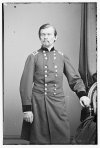
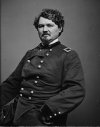
Lyon would not be able to head south from Boonville until July 3rd, having spent the time collecting provisions and awaiting reinforcements. He would join up with a detachment of his forces commanded by Major Samuel D. Sturgis in Clinton, Missouri on July 7th. Six days later, on July 13th, Lyon would reach Springfield, Missouri where another detachment of his forces commanded by Colonel Franz Sigel was waiting following their defeat at the Battle of Carthage. And on August 10, 1861, Brigadier-General Nathaniel Lyon would be killed-in-action at the Battle of Wilson's Creek. [55]
